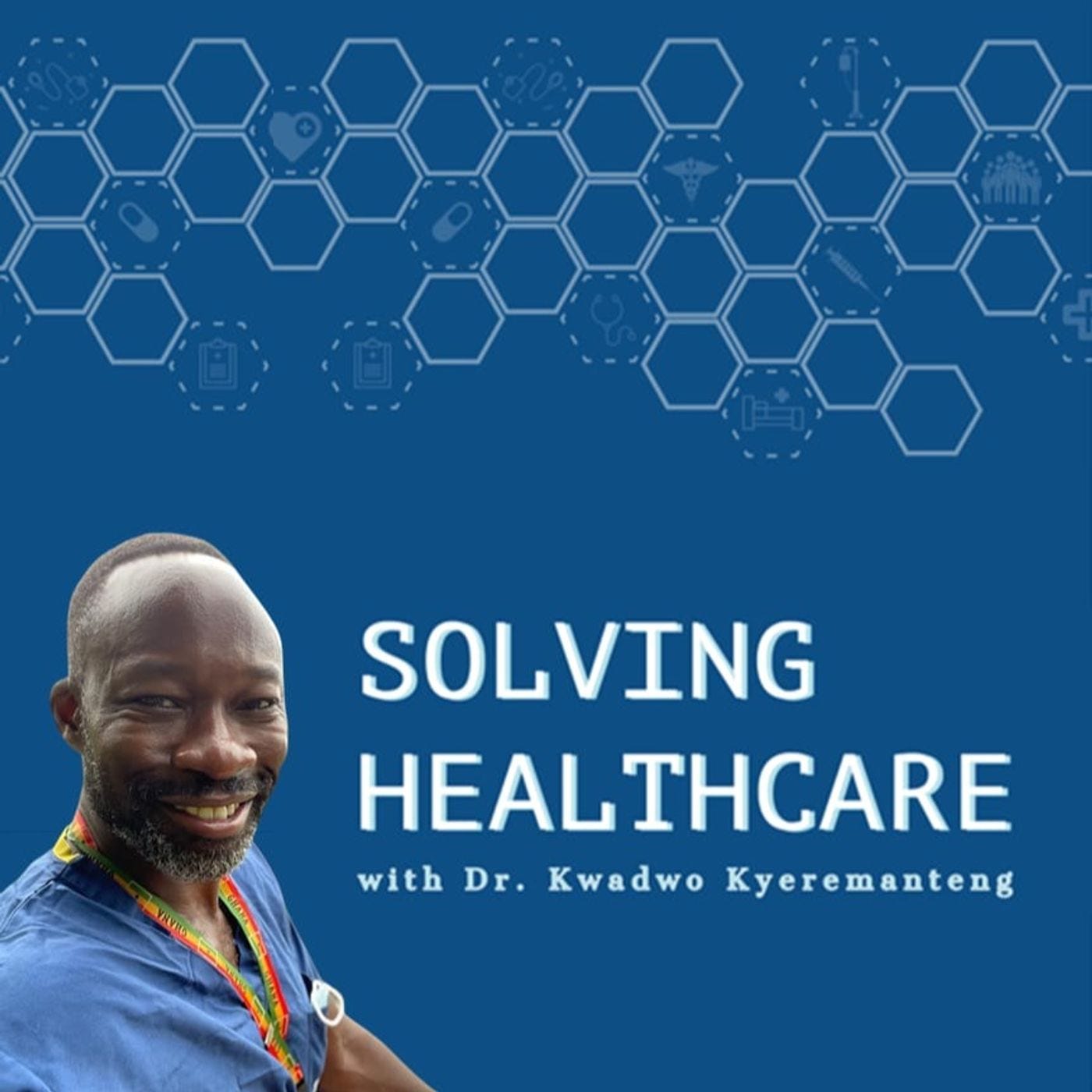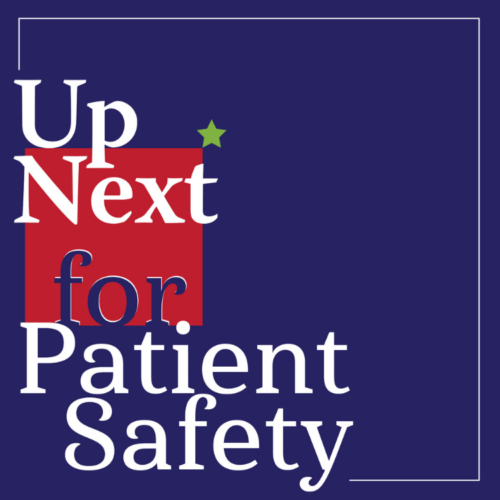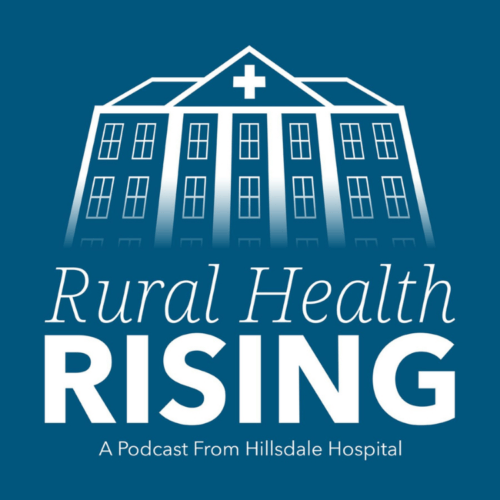The Impact of Inappropriate Care with Dr. Gianni D’Egidio. Part 1
Here’s our links to some of the studies we refer to.
Ethical failings of CPSO policy and the health care consent act: case review.
https://bmcmedethics.biomedcentral.com/articles/10.1186/s12910-019-0357-y
Outcomes and Cost of Patients With Terminal Cancer Admitted to Acute Care in the Final 2 Weeks of Life: A Retrospective Chart Review
Resource Optimization Network website: https://www.resourceoptimizationnetwork.com/
Follow us on twitter: @Kwadcast
Episode transcripts:
Kwadwo: 00:01 Welcome to solving healthcare. I’m Kwadwo Kyeremanteng. I’m an ICU and palliative care physician here in Ottawa and the founder of resource optimization network. We are on a mission to transform healthcare in Canada. I’m going to talk with physicians, nurses, administrators, patients and their families because inefficiencies, overwork and overcrowding affects us all. I believe it’s time for a better healthcare system that’s more cost effective, dignified, and just for everyone involved.
Kwadwo: 00:37 For our very first podcast, I’d like to introduce dr Gianni D’Egidio. He is first off, a very good friend of mine who does critical care and general internal medicine at the Ottawa hospital. In this episode we’ll talk about the impact of providing inappropriate care to patients and also discuss how to manage conflict in these circumstances. Gianni D’Egidio. Thanks for joining us. My pleasure. Um, first of all, I’d like to thank you for coming, considering that I completely dominated you in an arm wrestle not that long ago in front of many people in Clearwater, Florida. So I’m very grateful for you to be appearing on the show today. Thank you. Well, I see this podcast is going to be full of lies today. All right, we’re off with a bang. Okay. So as an intensivist, as a general internist, where do you see the problems in our healthcare system?
Kwadwo: 01:36 I would have to say from my perspective, the biggest problem has to do with our lack or inability to correctly have an end of life care discussion or goals of care discussion. Now these terms are going to be interchangeable. Let’s just say, uh, the term I’ll use is, is proposing an adequate treatment plan to people. Okay. And the reason that is important, uh, is because what it results in is basically what you see right now in our entire healthcare system is a tremendous backlog. Everything is full. Uh, the hospitals are full, longterm care facilities are full. And I think one of the biggest problems we have is an inability to deal with these issues, namely having inappropriate, uh, discussion with substitute decision makers or patients about their overall prognosis and their overall care.
Kwadwo: 02:25 So, okay. So that’s the problem. And where do you see this bottlenecking? Is this within family practices? Are we doing this within a tertiary care centers? Like where do you see this mostly being a problem?
Gianni: 02:38 Tickets from a continuum of starting with family practice? I think it can start there. It is rare that a family physician will have a well-informed, uh, advanced care planning session with their patients. And that then results in potentially, uh, an inappropriate admission to, and then when that admission to hospital comes, now let’s take it into the acute phase where there is also probably an either ill informed or inappropriate conversation during the admission process, either through the emergency physician or the admitting physician. And then that progresses to further potential deescalate or excuse me, worsening of the patient in hospital and then results in a intensive care unit admission. Okay. Without giving a co like a exact patients scenario, walk us through exactly like what this could look like. So for instance, let’s use one of our studies as an example. Okay. We looked at people presenting to the emergency department who subsequently died in the last, they were basically in the last two weeks of their life.
Gianni: 03:45 Uh, these were people with advanced cancers, metastatic cancer who present to the emergency department and subsequently died within two weeks. 71% of those individuals who clearly had end stage disease, 71% of those individuals did not have any discussion regarding end of life or advanced care planning. So there’s a typical example of our system of a failure of our system. And this is not to put blame on oncologists or a family physicians or intensivists. This is to say that the vast majority of people or the vast majority of physicians are either uncomfortable with having that discussion or are improperly educated about how to have that discussion. Interesting. So obviously we do the same line of work. We see this problem all the time. And what do you think, you kind of answered the question, but what do you think is the problem? Like if we know it’s an issue with addressing goals of care, why isn’t it happening?
Gianni: 04:45 I would boil it down to two major issues. One is education amongst not only patients and substitute decision makers, but amongst physicians. And the second problem is fear. Um, or uncomfort or whatever you wanna label it as I would label it as fear and on the aspect or on the side of physicians especially that they are fearful of having these conversations, especially when the conversation is going to be fraught with emotion or conflict. So let’s get back to 2.1 if I may about education when I, this is just anecdote, when I pull the medical students and residents that are in a lecture and I give many talks on end of life care, advanced care planning or proposing a treatment plan, I pull them on. I ask how many of you have had any education whatsoever in medical school about how to deal with conflict or how to have an appropriate end of life care discussion or advanced care planning discussion.
Gianni: 05:43 The vast majority raise their hand and say, we have not had that type of education. If we had had that education, it’s only been for an hour or one lecture and that is it. So here are these medical students now residency. And then I asked the residents the same question and again the vast majority lack that education or that formal teaching on it. They say they pick it up from their attendings. Well I’ve got news for everybody. If your attending is not very good at having that conversation and they are going to be your role model or your source of education for that a topic, I’ve got news for you, your end of life care discussion or advanced care planning discussions are also going to be quite poor. So education is tremendously lacking and then that results I think in point number two which is fear.
Gianni: 06:31 We as physicians I think are, I as mentioned uneducated when it comes to having discussions that results in fear of having the discussions or avoidance of having these discussions. Let’s look at the small percentage of conversations or families or substitute decision makers that are quote unquote difficult and we know they’re going to be difficult. Physicians are fearful of having those conversations completely fearful and that we’ll use the term almost cowardly. Um, when it comes to having those conversations, especially when they substitute decision maker or family member is threatening with a lawsuit or threatening to go to the media or whatever it may be that they’re using. Um, physicians will avoid that conversation and if they’re not avoiding the conversation, the conversation will basically allow the substitute decision maker to guide the treatment at that point. Like I couldn’t agree more. And one of the things that people don’t appreciate is the downstream consequences of these lack of conversations.
Kwadwo: 07:32 So yes, the patient gets admitted to an inpatient or into the intensive care unit, they get all this treatment, which people don’t realize how, how much of a strain it is for the family member, for the patient, for the care team, for, you know, having that moral distress of giving, like providing care to someone that’s not going to benefit. So you’ve been involved in several cases where there’s been conflict with the treating team and the family or substitute decision makers. I’m wondering if you could talk about that process a little bit and, and maybe even describe what the experience has been like for the patient. The family, the care team and yourself. So the, for those that are listening that don’t know what the consent capacity board is, the consent and capacity board or the CCB is an independent quasi judicial tribunal. I’m appointed by the province to basically adjudicate what is in the best interests of a patient, especially when there is a conflict or dispute between what the treatment team feels is in the patient’s best interest compared to what the substitute decision makers feel is in the best interests of their loved one.
Gianni: 08:55 Um, Ivan and involved, uh, in six consent and capacity board cases and also been involved indirectly in multiple other cases. And I’ll talk about, uh, our study a little bit later on. So regarding the CCB, um, the CCB as mentioned as closer judicial, it’s basically a, uh, court like, um, a system or court like, um, process where me as the, uh, treating physician will file an application with a consent capacity board to basically, um, challenge whether or not the substitute decision maker is abiding by the principles of substitute decision making, which is section 21 of the health care consent act. And what that section 21 looks at is as mentioned, the principles of substitute decision making and a substitute decision maker. If I can make one clear point on this podcast today and what I do during my lectures as well, a substitute decision maker is only there to consent to the treatment plan that physicians propose and they have to do so based on number one previously expressed wishes of their loved one and if there’s no previously expressed wishes, then they have to act on best interests.
Gianni: 10:01 A which considers values and beliefs substitute decision makers are not there to demand therapy, they cannot demand therapy and they are only there to consent. Like I said to the treatment plan that we propose and this goes back to our education and our inability to appropriately propose a treatment plan. So in terms of their demand of therapy, we as physicians are not obliged to offer, propose or initiate any therapy that has not been started or that will not benefit the patient in our opinion. Okay. That’s what we forget all the time on our side. Substitute decision makers like me, like I mentioned have to act on previously expressed wishes and if not best interest and the consent capacity board will basically adjudicate, um, solely based on law and solely based on the section 21 of the health care consent act. So I filed a six applications.
Gianni: 10:59 I’ve been involved in five consent and capacity board hearings. Um, they are the consent capacity board. I guess the pearls of the consent and capacity board are that it is heard more end of life cases than any other court’s combined in Canada. It is supposed to be rapid in the sense that once I file an application you’re supposed to hear, there’s supposed to be a pre hearing within one week of filing of that application and it’s supposed to be much faster than the court system. Ideally you’re having a pre hearing within a week and then ideally you’re having the hearings within a month or two. Unfortunately that has been changing over time and I’ll get into that maybe a little bit later on. So getting back to the pro, it’s supposed to be fast. And more importantly when the hearing is done, you get your reasons for decision within 24 hours, which is unheard of compared to any other court Lake system.
Gianni: 11:49 Um, the cons of the consent capacity are that the decision is solely based on law. It does not factor in the ethics, the opportunity costs, the medical standard of care or whatever else physicians would deem important. When it comes to proposing a treatment plan or it comes to the care of a patient, it’s solely based on, like I said again this subsection 21 of the health care consent act. Um, my experience with the CCB has been mixed. I would say, um, lately the from filing of application to decision has been three to four months, which albeit is still faster than the court system. However, it is still, uh, quite arduous in terms of the amount of preparation that requires and the amount of time in spent in hearings. So the latest case that I’ve done, basically it was a seven day process, uh, not to mention the multiple pre hearings beforehand.
Gianni: 12:47 So it can be quite labor intensive. And the reason I mention all this is because the vast majority of physicians will not proceed with a consent capacity board case. Um, I have done six, I know of in Ottawa at least, there’s only been basically two other physicians who have filed a form G application, which deals with end of life care issues at the consent capacity board level. Um, so the vast majority of physicians will avoid it. And another factor is even if the reasons of decision, um, I hate to use a term but are favorable for the physician, let’s say they find that the consent capacity or the, excuse me, that the substitute decision makers have not acted in the best interest of their loved ones that can be appealed. And then the appeal process will take another five to six months. And, uh, only adding to the workload and time for said physician involved.
Gianni: 13:37 In that case, not only is there the workload or the never ending aspect of the consent capacity board cases, but it can also potentially result in litigation. So you can understand why the vast majority of physicians will not want to pursue this Avenue. Then getting into your point about the effect it has on families, a more substitute decision makers. While you can say goodbye to the therapeutic relationship that’s essentially over, once you file that form G application or start mentioning courts and lawyers and whatever else. So the therapeutic relationship completely breaks down there is going to be most likely an associated costs for the substitute decision maker because they will have to retain legal counsel. If they can afford legal counsel then great. Yes they will. They will have to basically a fork out their own money for that process. If they can’t afford it then they can get legal representation through legal aid.
Gianni: 14:29 Um, so you have not only the financial burden for substitute decision makers, you have the therapeutic relationship breaking down and there is no doubt is a stressful for substitute decision makers as well. Right. Going through court is not a fun process for anyone involved. So you got into the technical aspect which fine, but like why are you doing it? Like are you seeing that is driving you to want to go through this process? Like give us a sense of what a patient is going through at the time where you, you, you decide I’m going to go through this process again, this comes at um, you have to remember that consent capacity board cases are open to the public and the reasons for decision are available to everyone. So what I am disclosing, I’m not disclosing any personal health information or anything like that and I have written about this.
Gianni: 15:22 I have also used these experiences in the consent capacity board but that there is no doubt in my mind and no doubt, um, in the eyes of any of the healthcare team involved that the patient is absolutely suffering. And I will use extreme examples from cases, um, where basically there are profound ulcerations of the skin because of immobility and despite how good our nurses and our healthcare team is with moving patients, repositioning them, whatever else. Those are absolutely unavoidable. In these situations, you are dealing with an individual who is completely basically comatose who is now in one case was on months and months of vasopressin. I’ve got news for people. If you put someone on months of vasal pressers, you are basically, their skin has zero flow, it will have very, very poor blood flow. You combine that with pressure and the next step is profound ulceration to the point of sloughing of skin in multiple areas.
Gianni: 16:25 And in one instance basically a complete degloving of a scalp from simple, um, bedside combing of the hair, um, that has happened, that has been documented. Um, and the same process will happen with any indwelling tube, uh, and breakdown. So for instance, rectal tubes, rectal tubes will result in the complete destruction of the rectum if it is unbelievable to see what will happen to these individuals. Um, so first and foremost it comes down to the suffering of a patient. And second, it comes down to just the injustice and uh, ethical dilemma that it presents to physicians. And that results in me basically bottom line, full disclosure being absolutely angry about the entire process. I could feel the anger in the room right now. But yeah, I gotta say I’ve seen you in and around a couple of cases and this is not easy getting back to like the reasons to do this. So I couldn’t agree more that the cases that we see in the ICU have these prolonged uh, treatments where the patients aren’t benefiting and it’s been driven by the families, the amount of sufferings, insane. And one thing that goes under appreciated is the work our nurses are a allied health team members go through to to provide care. Like I’ll never, when I was a fellow,
Kwadwo: 17:50 we were rounding on one of these patients that weren’t going anywhere and the nurse was crying in the corner, like trying to hide that she was getting emotional. I’m like what’s the matter? Like what’s going on? And she’s like, every time I walk into that room I feel like I’m torturing that patient. I’m like 12 hours of torturing this poor guy. And it was actually a huge epiphany for me because like when we get involved, we’re involved for like five to 15 minutes, right? To do our assessments or whatnot and they’re at the bedside for 12 hours doing this. You know, it comes down to for me, you know, in terms of the justice point of view, like people don’t realize also about the financial burden that is being put into this. Like into cases that people aren’t benefiting in. You know, 1% of your gross domestic product goes into treating people in the ICU.
Kwadwo: 18:51 A reasonable percentage of these, those people aren’t benefiting. And we need to think about some of the opportunity costs. A colleague of ours, Michael Harwich, he was talking to us about his kid who has a, I think there’s a breakfast program at his school where they, for underprivileged kids, they provide food for, uh, to ensure that they get nourished and they had to cut the program cause they were short money. And I’m like, this is insane. We are flogging some people that would never want cake, would never want treatment and we can’t feed kids like, you know, get all that is.
Gianni: 19:30 So let’s, let’s, that’s a perfect segue into the next study that, uh, I or we are doing and will be presented at the Canadian critical care forum. Uh, in November there were 12 patients. Uh, let’s, this is a case series of 12 patients that I’ve been directly involved in. And just off the top of my head, picked 12 patients that have been these, let’s say drastic cases or extreme cases, but these 12 patients had a median age of 83 years old. They were meeting median age of all 83.5. So let’s round up to 84. Let’s just do that. Fair enough. They had an average length of stay in hospital of 263 days. Okay. That is absolutely I think incredible. And their average ICU length of state was 109 days. All 12 of these patients died. All 12 of these patients had extreme cognitive impairment, either the vast majority through dementia.
Gianni: 20:25 And three, if I remember off the top of my head, three out of the 12 cases due to a severe interest cerebral, um, incident. Um, so as mentioned, all of these folks, unfortunately, well I should say all of these patients, I shouldn’t use the term folks. All of these patients pass away the average cost of these 12 patients to our system, not including physician costs or any other, these are just indirect and direct costs. Nearly $8 million for these 12 patients. One patient spent 704 days in hospital. Now you cannot tell me that this is a wise use of our resources when we talk about opportunity costs. Now let’s talk about the things this study didn’t capture. Multiple nurses have quit and I know that directly, uh, multiple nurses have sought sick leave because of this. Um, we have had, um, there, there has been a tremendous um, decrease in the sort of wellbeing of our health care team.
Gianni: 21:26 When these cases happen or even after the fact, you could feel it. Yes, yeah. Yes. And it has scarred certain individuals, scarred individuals to the point where they have quit. They have left their position. And these are not junior nurses. These are nurses in mid career who have decided I have seen enough. This is this case in particular has pushed me over the edge. I will not, I will no longer be an intensive care unit nurse. And you know what’s insane? It’s like their whole mantra of their whole job is to like, I want to make people better. I want to help heal people. I want to help them get their function back and they get shat on to get verbally abused. They get inundated with all this. They have the moral distress and they often feel powerless. Yes. You know what I mean? And it’s like we need to do some shit about this.
Gianni: 22:20 So this is, this brings us into another part of the bigger problem, which is as physicians in a healthcare team, besides the roots of the consent capacity board, the odds are stacked against the healthcare team right now. And if I may use the analogy of, of the pendulum, the pendulum has swung far too much towards the principle of autonomy. And I will refer people to the study that we recently published as well about the ethical failings of the end of life care or CPSO end of life care policy. And the health care consent act, which are completely favoring autonomy and they completely disregard other ethical principles such as distributive judge justice, non-maleficence and beneficent, excuse me. Um, and the reason that is our policies and law are completely stacked against um, those ethical principles and completely favor autonomy. For instance, the CPSO end of life care policy, which basically just to summarize, basically says you need consent not to perform CPR.
Gianni: 23:22 This is the only treatment that I am aware of that has ever been or deemed by the college or any, uh, professional body to be uh, universally indicated in everyone. And as I point out, again, when I lecture my med students and residents, there is no treatment that is universally indicated in any one. I use the simple things like water and oxygen. Oxygen is not universally indicated and everyone, in fact, oxygen can be harmful when not indicated. Water is not universally indicated in everyone. For instance, in the hyponatremic patient, there is no way that CPR is universally indicated in every single individual. They are going to be clear cases where CPR will never benefit in an individual and should not be offered. I mean you and I both know how insane that that statement was. Like just to be clear for the listener, like you could have a patient with end stage cancer.
Kwadwo: 24:13 You have a patient that is having end stage renal function. I, he needs dialysis and the treatment, the treating team says like this patient is not a, uh, is not a candidate for further chemo. They’re not a candidate for further dialysis. They’re not tolerating it. This ruling would still say that if they die you would need consent not to do CPR. Correct. Which is insane. Now, one of the things we as physicians, and this gets back to again, the uh, topic that I’ve been focusing in on is our proposal of treatment plans is very poor. And as I mentioned earlier, we do not need to offer any treatment or propose any treatment or begin any treatment that has not already been initiated or that’s not going to be beneficial to an individual. However, that requires that the entire treatment team be on the same page.
Gianni: 25:06 And you have to remember our healthcare system or the way we operate in intensive care unit, I don’t want to call it fragmented, but we have a most responsible physician or attending physician every week. Right. And to get consensus for let’s say 20 individuals, 20 physicians who are going to be looking after this patient, there’s going to be a different level of comfort amongst those attending physicians about what they’re gonna offer and not offer for fear of reprimand because of a lawsuit, a college complaint or whatever else it may be. Even though said physician completely agrees that this treatment should not be offered, but they are fearful of the consequences of saying I am not going to offer dialysis. I am not going to offer peg tube feeding. But they are fearful of the consequences of that. I mean is because of the process. Like just to be the devil, the process.
Kwadwo: 25:52 Once you get a complaint, you get named in a lawsuit. That’s years of your life. Yes. You know what I’m saying? And, um, so there is a lot of unfortunate the deterrent to be able to stand up and do what’s right. But I think at the end of the day, all of us gotta look ourselves in the mirror, yo. And full disclosure, I have had a college of physicians and surgeons complaint, um, which took 15 months to basically resolve. I have had complaints to the chief of staff of the hospital to the CEO of the hospital, to my member of parliament as well. So these are, and I’m willing to deal with those. Uh, but again, I don’t, I can’t blame my colleagues for saying I don’t want any of that. Especially if there is something else going on in their life that has providing them stress in their personal life or their academic career, whatever it may be. Right. They’re going to completely avoid that. And part of me can’t blame them.
Get full access to Solving Healthcare Media with Dr. Kwadwo Kyeremanteng at kwadcast.substack.com/subscribe

































